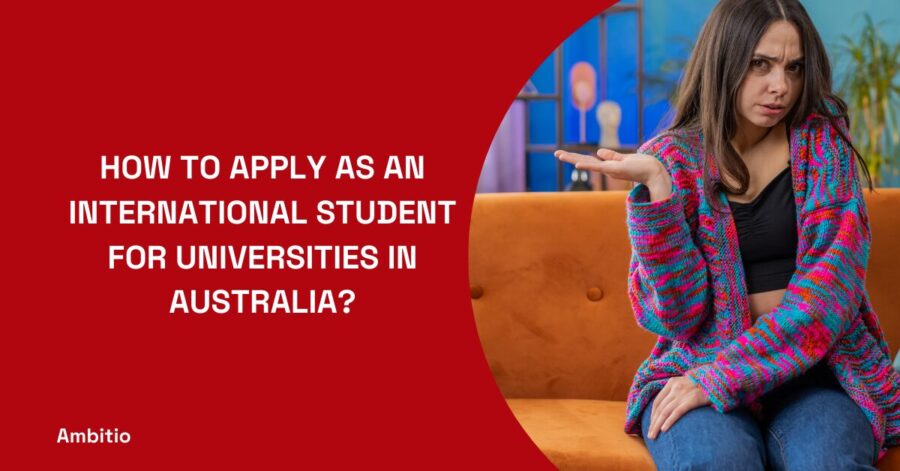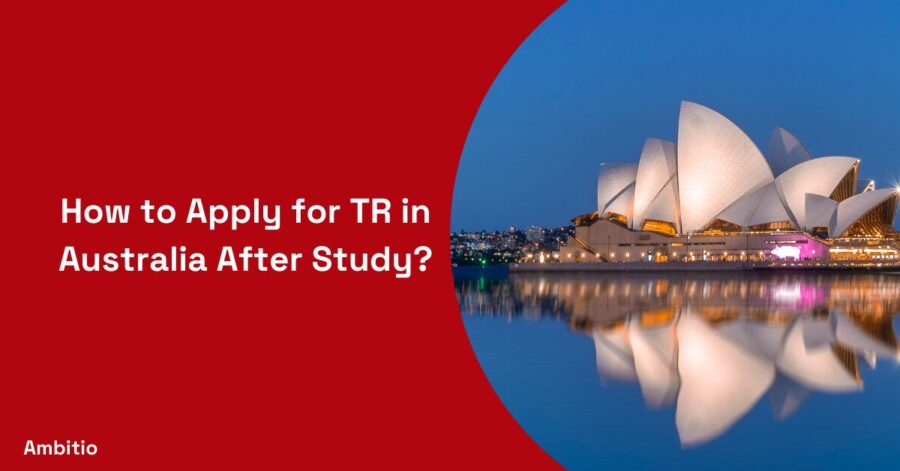13 December 2024
6 minutes read
Can My Uncle Sponsor Me to Study in Australia? Navigating Visa and Sponsorship Options

Introduction
The prospect of studying in Australia is an exciting opportunity for many international students. However, the question arises, “Can my uncle sponsor me to study in Australia?
Understanding the intricacies of the Australian immigration system, especially regarding student visas and family-sponsored visas, is crucial for aspiring students.
In this comprehensive guide, we will explore the possibilities, requirements, and procedures for obtaining a family-sponsored visa in Australia, with a specific focus on sponsorship by an uncle.
Navigating the Visa and Sponsorship Landscape for Studying in Australia
Understanding the Australian Student Visa and Family-Sponsored Stream
To study in Australia, most international students need to secure an Australian student visa (subclass 500). This visa permits students to live and study in Australia for the duration of their course.
For those who require financial assistance, a family member residing in Australia, like an uncle, can play a pivotal role. This leads to the exploration of the family-sponsored visa, particularly the subclass 491 visa, under the family-sponsored stream.
The Essentials of the Australian Student Visa
Gaining an Australian student visa involves several crucial steps. Firstly, the applicant must have a Confirmation of Enrolment (CoE) from an Australian educational institution.
Additionally, the visa application process requires evidence of financial capacity, health insurance, and meeting health and character standards. The visa also allows students to work a limited number of hours, providing an opportunity to gain work experience in Australia.
Financial Support and Sponsorship under the Subclass 491 Visa
Under the subclass 491 visa, an eligible relative in Australia, such as an uncle, can offer sponsorship. This sponsorship primarily revolves around financial support, proving that the student has enough funds to cover their stay, tuition, and living expenses in Australia. It is a pathway for those who may not have the means to support their education independently.
Exploring the Role of a Sponsor in Student Visa Applications
When delving into the possibility of being sponsored by an uncle to study in Australia, it is important to understand the role and limitations of a sponsor in the student visa application process.
Eligibility Criteria for Sponsors
For an uncle to sponsor a student visa, he must be either an Australian citizen, a permanent resident, or an eligible New Zealand citizen. He must also demonstrate financial stability and the ability to provide substantial support for the student’s educational and living expenses in Australia.
The Impact of Sponsorship on Visa Approval
While an uncle cannot sponsor a student visa directly, his financial support can significantly enhance the student’s visa application. Providing evidence of this support can demonstrate to the Australian immigration authorities that the student has sufficient means to live and study in Australia, fulfilling one of the key visa requirements.
Navigating the Visa Application Process for International Students
The process of applying for a student visa in Australia involves several steps and careful preparation to ensure all requirements are met.
Document Requirements and Application Submission
Key documents for the visa application include a valid passport, CoE, proof of financial capacity, health insurance, and character certificates. The application is usually submitted online through the Australian Government’s Department of Home Affairs website, where applicants can also track their application status.
The Importance of Accurate and Complete Applications
The accuracy and completeness of the visa application are paramount. Any discrepancies or missing information can lead to delays or even rejection of the visa application. It is advisable for students to double-check all entries and ensure that all necessary documents are included before submission.
Financial Requirements for Australian Student Visas
Understanding the financial requirements for obtaining an Australian student visa is crucial for prospective international students. The Australian Government mandates that students demonstrate their ability to finance their education and stay in Australia to ensure they can comfortably live and study without encountering financial hardships.
This section will delve into the details of these requirements, including estimates for tuition and living expenses, and the documentation needed to prove financial capacity.
Estimating the Cost of Education and Living in Australia
The primary financial consideration for studying in Australia is the cost of education, which varies significantly depending on the institution and course of study.
For example, vocational education and training courses may cost differently compared to undergraduate or postgraduate degrees. Additionally, disciplines such as medicine and engineering often have higher tuition fees than arts or humanities courses. On average, international students can expect annual tuition fees to range anywhere from AUD 20,000 to AUD 50,000.
Living expenses are another critical aspect of the financial requirement. The Australian Government estimates that a single student will need approximately AUD 21,041 per year to cover living costs.
This estimate includes accommodation, which can vary greatly depending on whether a student opts for on-campus residence, shared rentals, or private accommodation.
Other living expenses include food, transportation, utilities, and personal expenses. It’s also wise to factor in costs for health insurance (Overseas Student Health Cover), which is a visa requirement.
Demonstrating Financial Capacity for Visa Approval
To satisfy visa requirements, students must demonstrate that they have enough funds to cover the first 12 months of tuition fees, living expenses, and school costs for dependents, if applicable. The Department of Home Affairs requires this proof of funds to ensure that students can support themselves during their stay in Australia.
The types of evidence accepted include:
- Bank Statements or Deposits: Showing a balance that covers the costs for the first year. This can be in the student’s or a relative’s account, like a parent or an uncle, who is financially sponsoring the student.
- Scholarship or Sponsorship Letters: If the student has been awarded a scholarship or is being sponsored, a letter from the institution or sponsoring organization detailing the financial support covers this requirement.
- Loan Approval Documents: If the student is taking an education loan to finance their studies, a letter from the bank or financial institution confirming the loan approval and amount.
- Annual Income of Parents or Guardians: Evidence of the annual income of the student’s parents or guardians can also be provided, especially if it is above AUD 60,000 for single students or AUD 70,000 for students accompanied by family members.
It’s important to note that the Australian Government requires these funds to be genuinely available for use. This means that the funds should be accessible and transferable to Australia as needed. Additionally, students should be prepared to provide additional evidence or information about their financial capacity if requested by the visa officer.
Budgeting and Planning
Effective budgeting and financial planning are essential for international students. It’s advisable to research the cost of living in different cities in Australia, as places like Sydney and Melbourne can be more expensive compared to smaller cities or regional areas.
Students should also consider potential income from part-time work, though it’s important not to rely solely on this as there are restrictions on the number of hours an international student can work while on a student visa.
Preparing for Unexpected Expenses
Students should also plan for unexpected expenses. It is wise to have a contingency fund to cover unforeseen costs such as medical emergencies, travel, or changes in accommodation.
The Role of Migration Agents in the Visa Application Process
Many students opt to use the services of registered migration agents to navigate the complex visa application process.
Benefits of Engaging a Migration Agent
A registered migration agent can provide expert advice on visa types, application processes, and compliance with Australian immigration laws. They can also assist in preparing and submitting the visa application, ensuring all requirements are met.
Choosing a Reliable Migration Agent
It is crucial to choose a migration agent registered with the Office of the Migration Agents Registration Authority (OMARA) in Australia. This ensures that the agent is knowledgeable and abides by a professional code of conduct.
Exploring Alternative Visa Options for Study in Australia
Apart from the family-sponsored visa, there are other visa options that students can explore to study in Australia.
Overview of Other Student and Work Visa Options
Other visa options include the standard student visa (subclass 500), post-study work visas (subclass 485), and various skilled and employment-sponsored visas. Each of these visas has its own set of requirements and benefits, catering to different student needs and circumstances.
Assessing the Best Visa Option for Your Situation
Choosing the right visa depends on several factors, including the length and type of study, financial situation, and long-term goals in Australia. Students should carefully assess their circumstances and consult with a migration agent if needed to determine the best visa option for their educational journey in Australia.
Conclusion
While an uncle cannot directly sponsor an Australian student visa, his role as a financial supporter is invaluable in strengthening the student’s visa application.
Understanding the different aspects of the visa application process, the financial requirements, and exploring alternative visa options are key steps in successfully navigating the journey to study in Australia. Consulting with a registered migration agent can provide additional guidance and ensure a smooth visa application process.
FAQs
Can my uncle directly sponsor my student visa in Australia?
No, an uncle cannot directly sponsor a student visa. However, he can provide financial support and potentially sponsor you under the subclass 491 family-sponsored stream.
What is a subclass 491 visa?
The subclass 491 visa is a skilled work regional (provisional) visa that allows eligible family members to sponsor applicants to live, work, and study in regional Australia.
What are the requirements for my uncle to sponsor me under the subclass 491 visa?
Your uncle must be an Australian citizen, permanent resident, or eligible New Zealand citizen residing in a designated regional area and provide evidence of financial support.
How long can I stay in Australia with a subclass 491 visa?
The subclass 491 visa allows you to stay in Australia for five years.
Can the subclass 491 visa lead to permanent residency?
Yes, the subclass 491 visa can lead to a permanent residence visa after meeting specific requirements, including living and working in a regional area for a certain period.

You can study at top universities worldwide!
Get expert tips and tricks to get into top universities with a free expert session.
Book Your Free 30-Minute Session Now! Book a call now




























